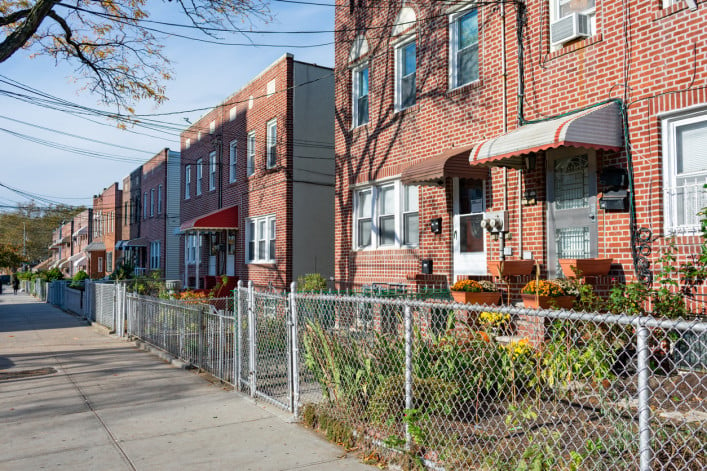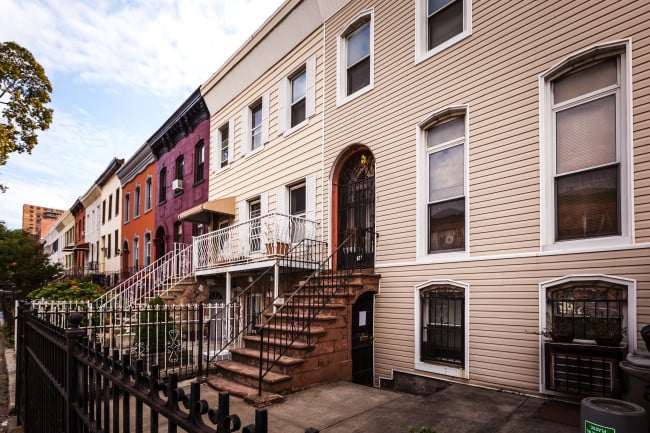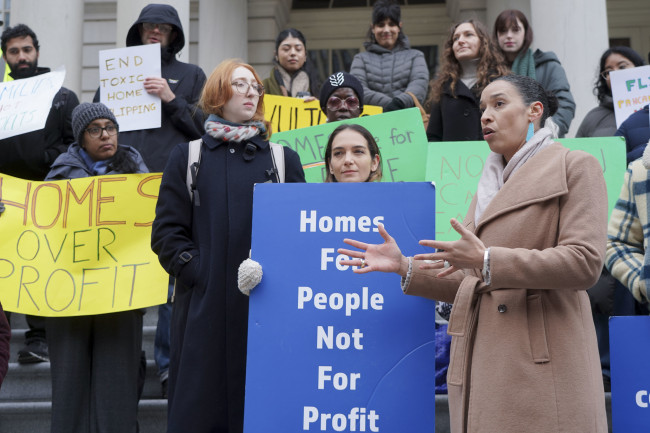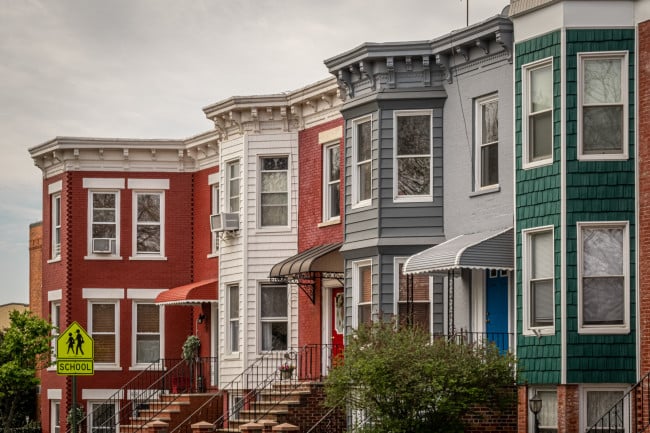Facing foreclosure? How a housing counselor (Mamdani's former gig) can help
- Housing counselors provide free assistance to owners who need to negotiate or refinance their mortgage
- Owners at risk of foreclosure should reach out to a counseling or legal service provider, and their lender
- Mayor-elect Zohran Mamdani’s first job was a foreclosure counselor for Chhaya CDC in 2019

Counselors can help owners in foreclosure or in pre-foreclosure, the period where you’ve missed mortgage payments but your lender hasn’t started legal foreclosure proceedings.
iStock
If you’re speaking with Thinley Dolma at one of Chhaya CDC’s offices in Queens, you’ve probably come to her for help saving your home.
Dolma, a senior housing counselor for Chhaya, helps owners stave off foreclosure after they experienced financial distress and failed to make mortgage payments. It’s work that she described as both incredibly stressful and incredibly rewarding. It’s also the job that helped put Mayor-elect Zohran Mamdani on the path to Gracie Mansion.
“Homeownership is everybody’s dream, but especially for the immigrant family, it’s the American dream,” Dolma said. “Being a homeowner, it doesn't mean that it's an easy process. There's so much complexity, especially regarding the mortgage, and especially if they are going through hardship. That’s where I come in.”

Mamdani, who was elected mayor on Nov. 4th, worked at Chhaya in 2019 for a little over a year, Annetta Seecharran, Chhaya’s executive director, told Brick Underground. While Seecharran, as a ninonprofit’s leader, doesn’t endorse candidates or campaigns, she said she understands how the work of foreclosure prevention could inspire someone to run for office.
“It brings out a fire in you,” Seecharran said. “When you’re doing this work, you can see very clearly how public policy has abandoned homeowners and vulnerable New Yorkers.”
New York City foreclosures rose 16 percent in the third quarter of this year to 412 first-time residential foreclosure filings, though that remains below pre-pandemic levels, according to an October report from PropertyShark. Queens, where Chhaya is based, saw the greatest increase in foreclosure filings, at 33 percent to 165 first-time filings.
While that’s far less than the spike in foreclosures seen after the Great Recession, many owners today still need help, particularly those who never fully recovered from pandemic job losses, Seerchan added. And government policies—such as hosting an annual tax lien sale, helps speculators find owners behind on their bills—can help push owners into foreclosure, Seecharran added.
“Most of the homeowners that come to us are still facing post-pandemic financial struggles, whether it’s a job loss, or medical issue, or rising costs,” Dolma said. “Especially senior homeowners who are on a fixed income—these are the ones especially having challenges [paying] property taxes or utilities.”
Maybe you know you’re going to miss your next mortgage payment, or maybe you’ve already missed one. Whatever your situation, Dolma advises getting help from a professional as soon as possible, talking with your loan servicer to keep them apprised of the situation, and staying vigilant for scams.
Read on for what you need to know if you’re at risk of foreclosure in NYC and how a housing counselor can help.
Talk to a housing counselor ASAP
A housing counselor can walk you through your options when it comes to communicating with your lender, renegotiating the terms of your loan, and in some cases, refinancing. But reaching out early means you’ll have a better chance of keeping your property, Tenying Yangsel, Chhaya’s assistant director of homeownership, told Brick Underground.
“A lot of our community members really get scared when they get a letter from the bank. But please, don’t ignore it,” Yangsel said.
Counselors work for agencies certified by the U.S. Housing and Urban Development Department, and can help owners in foreclosure or in pre-foreclosure, the period where you’ve missed mortgage payments but your lender hasn’t started legal foreclosure proceedings, said Kevin Wolfe, the deputy director of advocacy and public affairs at the Center for New York City Neighborhoods, a nonprofit that administers owner assistance programs throughout New York.
A housing counselor can help you negotiate with your bank to modify your loan, create a budget to keep up with your payments, connect you with funding for home repairs, or help reinstate your mortgage if the bank has foreclosed, Wolfe told Brick Underground. (Generally, a lender can begin the legal foreclosure process after you’ve fallen 120 days behind on your mortgage, or missed four payments, according to the Consumer Financial Protection Bureau.)
Importantly: Counselors are free for owners. New York state and federal dollars help fund their work, plus donations, Wolfe said.
How to find a housing counselor
New Yorkers can find a list of New York State-approved, non-profit housing counselors on the Department of Financial Services’s website. Or you can also visit the consumer facing website for the Homeowner Protection Program, which helps connect New Yorkers with free advice and assistance, Homeowner Help NY.
From 9 a.m. to 5 p.m. on weekdays, you can call the Homeowner Protection Program hotline at 855-466-3456. You can also call 311 and ask for the Homeowner Help Desk, which can refer you to an attorney or foreclosure counselor based on your situation.
Contact your loan servicer
As soon as you realize you’re going to miss a mortgage payment, contact your lender or loan servicer. Discussing your situation with your bank will make them less likely to begin the foreclosure process, and there’s a chance you can come to a resolution before having to head to court.
“You can't just say, ‘I missed six months of payments because I lost my job. Now I'm ready to pay it back again,’” Wolfe said. “Typically, you have to negotiate with the bank.”
In any case, you’ll have to speak with your lender eventually. In New York, owners and bank representatives must appear in court before a bank can take possession of your home, and your lender needs to sit down with you through a mandatory settlement conference, Wolfe said. (And FYI: Make sure you check out this timeline of the legal foreclosure process so you know what to expect.)
Before you get to the settlement conference table, you or your housing counselor should reach out to your financial institution in the hopes of striking a deal, Yangsel added.
“Make sure to tell your mortgage servicer that you are going to be behind and also, it’s always helpful to have a housing counselor,” Yangsel said. “But if you don’t, make sure you keep that communication open with the servicer.”
Watch out for scams
Owners at risk of foreclosure need to be on the lookout for scammers attempting to take their property, particularly deed theft scams, said Oda Friedheim, a now-retired attorney for the Legal Aid Society, told Brick Underground.
Don’t sign anything without a lawyer or counselor, be suspicious of individuals offering you money or financial assistance, and “please, go to a counselor to explore your options,” Friedheim added.
Deed theft scammers, criminals that trick apartment and townhouse owners into signing away their property through fraudulent paperwork, often target poor, elderly homeowners in gentrifying neighborhoods in Brooklyn and Queens. And they’re not always strangers, Seecharran noted.
“These predators are not necessarily outside of the community,” Seecharran said. “To me, that is just an indicator of the desperateness of our economy.”
But it’s not just current homeowners that should be thinking about scams. If you expect to inherit property, you need to have a frank conversation with the relative leaving it to you, or your fellow heirs, Friedheim said. For more information, check out: “How do I keep an inherited brownstone out of the hands of predatory investors?”
You Might Also Like



























